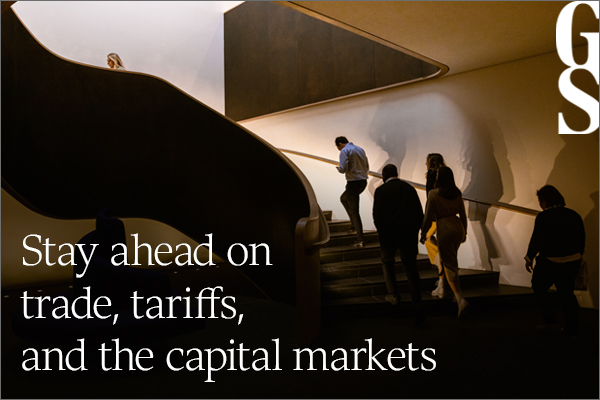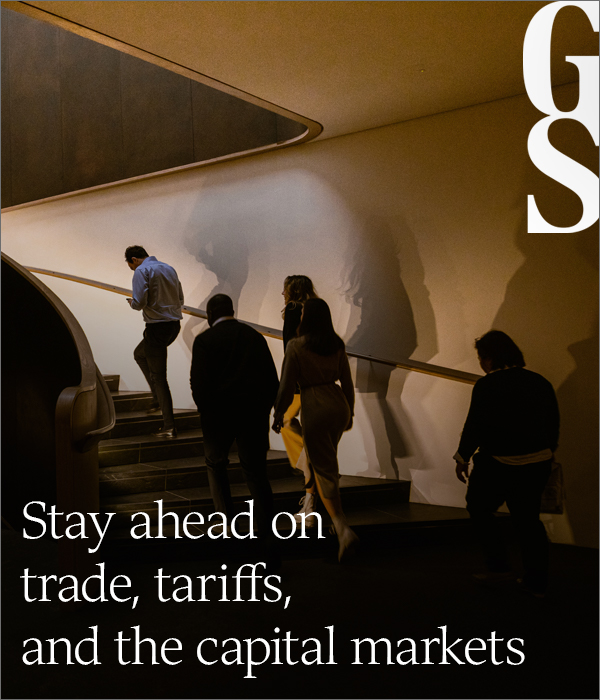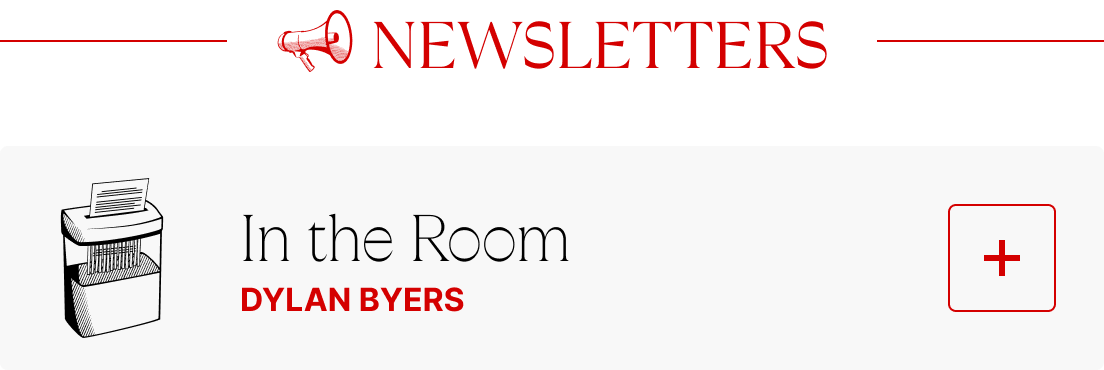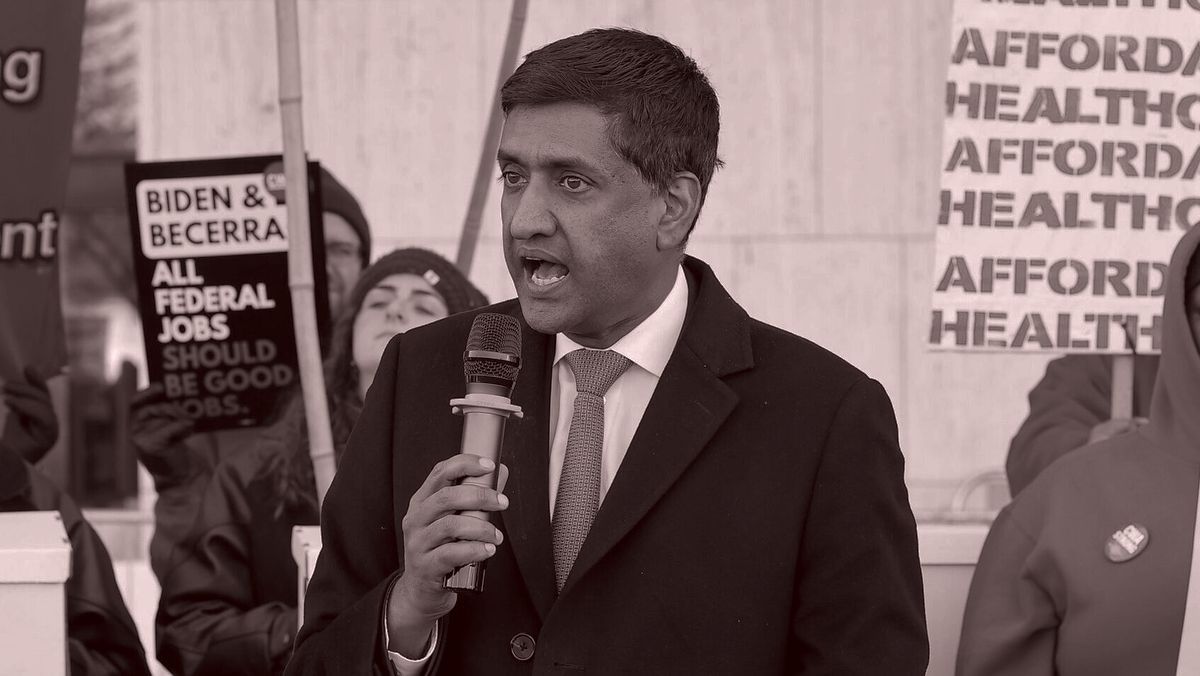Welcome back to Dry Powder. I’m Bill Cohan.
Amid persistent economic uncertainty, much of the chatter on Wall Street in recent days has centered on Paul Weiss, and whether the firm’s rainmaking chairman, Brad Karp, made the right decision by capitulating to the Trump administration in response to a head-spinning executive order targeting his law firm. In today’s issue, I spoke to a few insiders who shared their
realpolitik views on Karp’s choice—and unearthed some serious latent anxieties about whether banks and P.E. firms will soon end up in the crosshairs.
But first…
|
- Good prenups make good marriages: As you know, Google made headlines this week with its $32 billion, all-cash deal for cloud security software company Wiz, its largest-ever acquisition. But the transaction is turning heads on Wall Street for other reasons. For one, it’s a big deal at a time when there haven’t been many, though Wall Street is ever hopeful that the M&A market will rebound soon. It’s also notable that this was Google’s second attempt at purchasing Wiz,
following an abandoned $23 billion offer at the tail end of the Biden administration. The new deal is $9 billion higher, a further windfall for Wiz’s Israeli founders as well as its investors, including the smart guys at Blackstone, Greylock, and the ubiquitous a16z.
The consensus is that Google is expecting a different M&A regulatory environment in the second Trump administration. That’s why, according to this view, Google went back to the Wiz well in
the first place. But the detail that really got tongues wagging on Wall Street was that Google agreed to a 10 percent breakup fee in the deal, or $3.2 billion. Historically, M&A breakup fees have been in the 3 percent zip code. Is a new high-water mark for breakup fees in the offing? Or is there something more going on here?
It’s true that, as one longtime M&A banker noted to me, the massive breakup fee is still basically a rounding error for Google, and must have been
an important deal point for Wiz, presumably to compensate the company for potential lost revenue if regulators block the deal for whatever reasons. It’s also possible that larger breakup fees could become more common in an era of heightened policy uncertainty. But the positive signal for Wall Street is that Google appears pretty confident that Trump’s antitrust cops aren’t going to bother them anytime soon—and that it will likely be getting its $3.2 billion back when the deal closes.
|
|
|
Few on Wall Street view Brad Karp, the chairman of Paul Weiss, as a paragon of moral
clarity. But most senior finance executives are terrified that, once Trump finishes throwing darts at Big Law, he’ll take aim at banks and private equity firms. “If the government decides that it wants to get you, … don’t fight,” one Wall Street C.E.O. told me.
|
|
|
All anyone on Wall Street wants to talk about these days is Paul Weiss—in particular,
how Brad Karp, the law firm’s rainmaking chairman and a major force in Democratic politics, was forced to kiss Trump’s ring. Earlier this month, of course, the president issued an executive order restricting Paul Weiss’s ability to work on cases involving the federal government and threatening to punish anyone associated with the firm. Trump’s target list has so far also included Perkins Coie, a small Washington law firm that often works for Democrats
and commissioned the Steele dossier; Covington & Burling, which had aided Biden special counsel Jack Smith; and, most recently, Jenner & Block, apparently for the offense of rehiring Andrew Weissmann, an attorney and former A.U.S.A. who worked on the Mueller investigation.
But it was Trump’s attack on Paul Weiss, and Karp’s high-profile capitulation, that really got my crowd yapping. The March 14 executive order was Orwellian, citing the firm’s role in the “weaponization of government” and suspending its government “security clearance,” pending a review of whether its access to “sensitive information” was “consistent with the national interest.”
|
|
|
A MESSAGE FROM GOLDMAN SACHS
|
What’s driving market moves around the world — and where will they be going next?
Find a competitive edge with sector, market, and geographic insights and analysis from Goldman Sachs’ top economists and strategists.
Explore our market intelligence.
|
|
|
Trump also suspended Paul Weiss employees from entering federal buildings, forbade
federal agencies from hiring Paul Weiss attorneys, and directed that all federal contracts with the firm be canceled “to ensure taxpayer dollars no longer go to contractors whose earnings subsidize activities not aligned with American interests”—without defining what those interests are. Of course, these measures weren’t merely designed to limit existing business but to put an arctic chill over Paul Weiss’s future prospects. One Wall Street C.E.O. confided in me that, in his opinion, Karp had no
choice but to make peace. “If he doesn’t settle, the firm goes down,” he argued. “A lot of companies would just avoid the firm. They’d say, Why do we need this? Why do we need to hire Paul Weiss? We’re doing a deal. Why do I want Paul Weiss to do my antitrust?”
Karp would later describe the threat to the firm as “existential.” Indeed, within 24 hours of Trump’s edict, I’m told, he decided he needed to cut a deal to
avoid a bruising fight with the White House, even if many of his partners and peers across Wall Street hoped that the firm would stand up to the president—all while clutching their pearls on the sidelines, of course.
|
But to appease Trump, Karp first needed a path to the Oval Office. Karp has a long
history of fundraising for Democrats, and was a prominent supporter of Kamala Harris, so getting an open line to the president wasn’t a slam dunk. The weekend after Trump’s executive order, Karp and his partners started making calls. A prominent lawyer at another law firm with access to the administration was told that Brad wants to cut a deal. This person then tried to find a facilitator.
Near the top of the call list was Bob Giuffra, the co-chair of Sullivan & Cromwell, Trump’s new favorite law firm. (S&C is representing the president in the Stormy Daniels appeal.) Giuffra then referred them to Bill Burck, a co-managing partner at Quinn Emanuel, who Trump hired in January to be the administration’s “ethics advisor,” whatever that means.
Karp also reportedly reached out to Bob Kraft, the owner of the New England Patriots and a longtime Trump acquaintance and supporter. (Trump appointed Kraft’s wife, Dana Blumberg, to the new board of the Kennedy Center last month.) Kraft was also a longtime board member at Apollo Global Management, one of Paul Weiss’s biggest clients, whose C.E.O., Marc Rowan, was briefly considered for Treasury secretary
before the job went to Scott Bessent.
Soon, the necessary arrangements had been made. On March 19, according to a report in the Times, Karp walked into the Oval Office, where he spoke with the president for some three hours. Steve Witkoff, Trump’s Middle East envoy and Putin whisperer, was also there. Dialing in to the meeting were Giuffra
and Boris Epshteyn, a Trump legal strategist and consigliere. Trump praised Karp—as a great guy—and suggested the two of them should play golf. (White House comms director Steven Cheung could not be reached for comment because he keeps changing his contact information.)
Then it was nut-cutting time. In exchange for Trump’s decision to rescind his executive order, Karp agreed that Paul Weiss would donate $40 million in pro
bono legal work to Trump administration priorities such as helping veterans, countering antisemitism, and promoting fairness in the justice system. The firm also agreed not to “adopt, use, or pursue any D.E.I. policies,” according to the White House, although there was no reference to D.E.I. in Karp’s version of events.
|
Needless to say, Karp’s appeasement brought howls of criticism from many quarters. “I am profoundly
saddened and alarmed” by Paul Weiss’ “capitulation to the increasingly dictatorial Trump administration,” Larry Summers wrote on X. Paul Weiss “just flunked the character test,” said Sen. Sheldon Whitehouse. Rachel Cohen, an associate at Skadden Arps, very publicly resigned when her employer failed to criticize the administration’s retaliation against rival firms. “Paul Weiss’ decision to cave to the Trump administration on D.E.I. representation
and staffing has forced my hand,” she wrote on LinkedIn. “It is now or never, and if it is never, I will not continue to work here.”
|
|
|
A MESSAGE FROM GOLDMAN SACHS
|
Analysis. Outlooks. Perspectives.
The Briefings newsletter from Goldman Sachs brings you the latest perspectives from our
leaders, economists, and investors around the world.
Subscribe to Briefings now for the sharpest insights from Goldman Sachs.
|
|
|
In an email to his firm, Karp explained his reasoning behind the settlement. When Trump
issued the executive order, Karp wrote, he’d hoped other industry leaders would rise up in support of Paul Weiss and the other targeted firms. Instead, Karp lamented, competitors rushed to isolate Paul Weiss, calling the firm’s clients, as well as several of its attorneys, to ask if they were willing to switch teams. Meanwhile, clients reached out to tell Karp they’d likely have to change representation regardless because Paul Weiss was now persona non grata in Washington. Trump is “a
ballbuster,” a lawyer at a rival firm told me. “He’s like a small-town mayor. He’s Meade Esposito”—the longtime Brooklyn Democratic political boss. “We have Meade Esposito in the White House.”
In his email, Karp was candid about his understanding that many employees might feel uncomfortable with the terms of his surrender. “There was no right answer to the predicament in which we found ourselves,” he wrote.
“All of us have opinions about what is going on right now in America. This is an incredibly consequential moment for our country. It is very easy for commentators to judge our actions from the sidelines. But no one in the wider world can appreciate how stressful it is to confront an executive order like this until one is directed at you.” (The normally loquacious Karp did not respond to my requests for comment.)
|
Executives across Wall Street are apparently feeling Karp’s pain, and they’ve been eager
to let me know. One major bank C.E.O. told me he has “a lot of empathy” for what Karp went through. “As a C.E.O. who runs a business, and sometimes has to make compromises that I find personally distasteful, or I don’t really think are right, my responsibility is to protect my enterprise,” he explained. “I’m sure Karp is taking shit about what he did. But I think he did the right thing.” This C.E.O. said he thinks Karp gave Trump de minimis concessions in the grand scheme of things.
“You’ve got to play the hand you’re dealt,” he said.
This C.E.O. conceded that Karp and Paul Weiss have to take the P.R. hit for “kowtowing” to the Trump administration. “That’s a big thing, by the way,” he said of the perception that the firm had folded in the face of White House pressure. “I’m not diminishing that it’s a big thing.” But, he said, it was worth it to put the matter behind them. “If the
government decides that it wants to get you, and it’s going to be against you, don’t fight,” he explained. “You’re going to lose. Figure out how to de-escalate and settle.”
The government, he added, “has enormous power, and you have to respect it, whether it’s right or it’s wrong. They’d be idiots to fight. I understand why people are angry. I’m angry personally about the stuff going on, but it would
be absolutely asinine for me to stand up and yell and scream about it.”
The attorney at a rival firm agreed. “Take the blows and move along,” he told me. “Two weeks, it’ll all be forgotten.” He added that only “11 people” in the country know who Brad Karp is, anyway. And in his opinion, Paul Weiss kind of got what was coming to them. “Is it really good business to be out there kicking the shit out of the
administration?” he said, referring to Karp’s past wars with Trump, which likely did him no favors with Apollo, one of the firm’s biggest clients.
The looming question, and lingering fear, is what happens if, or when, Trump goes after a Wall Street player—a bank or a private equity firm or individual. There are plenty of Democrats who lead Wall Street firms, of course: Jamie Dimon at
JPMorgan Chase; Blair Effron at Centerview Partners; Peter Orszag at Lazard. Trump has already gone after Brian Moynihan, the C.E.O. of Bank of America, over what some are calling the “conservative de-banking scandal,” a veritable tempest in a teapot, at best.
It’s one thing for a law firm, of which there are thousands, to face an existential threat from the president
of the United States. But it’s quite another for Trump to aim his executive orders at a SIFI— a Systemically Important Financial Institution. We don’t have too many of those, and our entire financial system depends on our confidence in them. One can hope that Trump won’t do to Wall Street what he’s doing to the industry’s law firms. But hope, as my readers know, has never been an effective strategy.
|
|
|
Ace media reporter Dylan Byers brings readers into the C-suite as he chronicles the biggest stories in the industry: the
future of cable news in the streaming era, the transformation of legacy publishers, the tech giants remaking the market, and all the egos involved.
|
|
|
Join Emmy Award-winning journalist Peter Hamby, along with the team of expert journalists at Puck, as they let you in on the
conversations insiders are having across the four corners of power in America: Wall Street, Washington, Silicon Valley, and Hollywood. Presented in partnership with Audacy, new episodes publish daily, Monday through Friday.
|
|
|
Need help? Review our FAQ page or contact us for assistance. For brand partnerships, email ads@puck.news.
You received this email because you signed up to receive emails from Puck, or as part of your Puck account associated with . To stop receiving this newsletter and/or manage all your email preferences, click here.
|
Puck is published by Heat Media LLC. 107 Greenwich St, New York, NY 10006
|
|
|
|





















